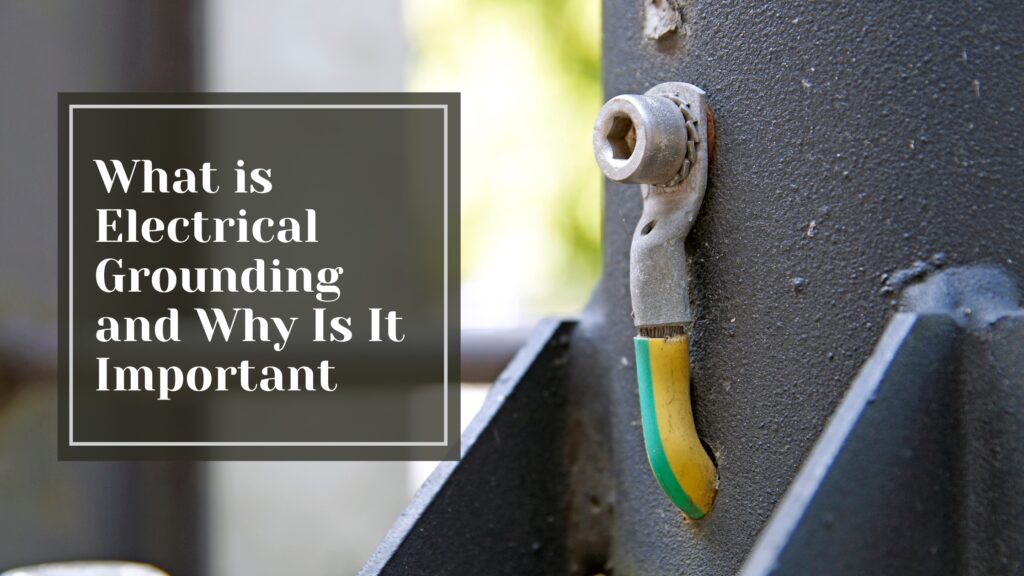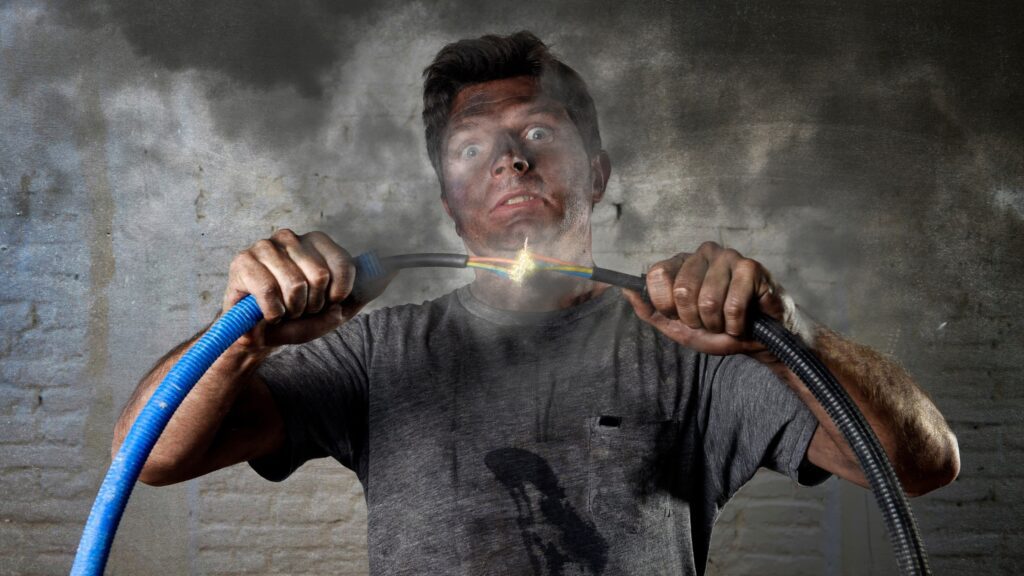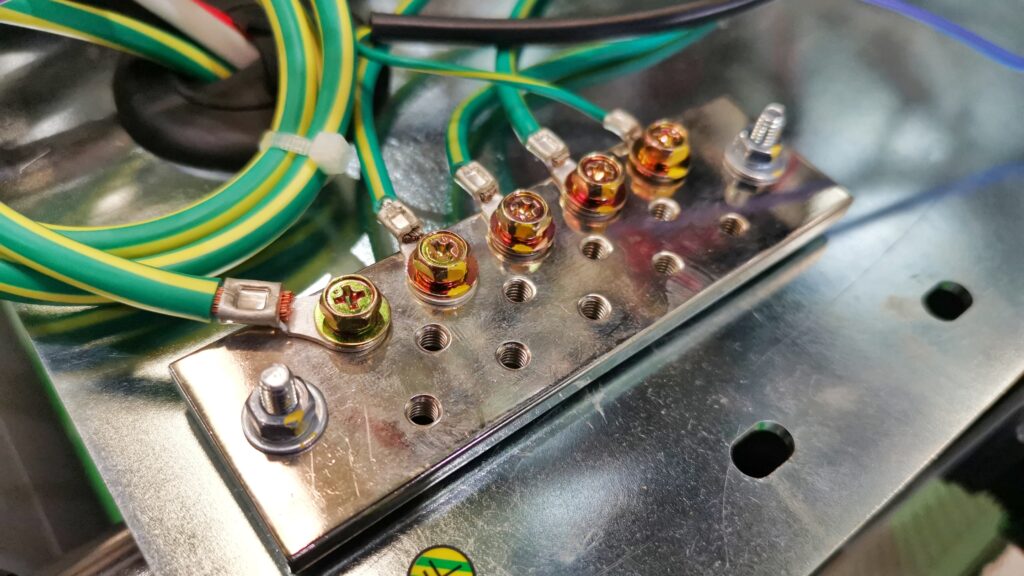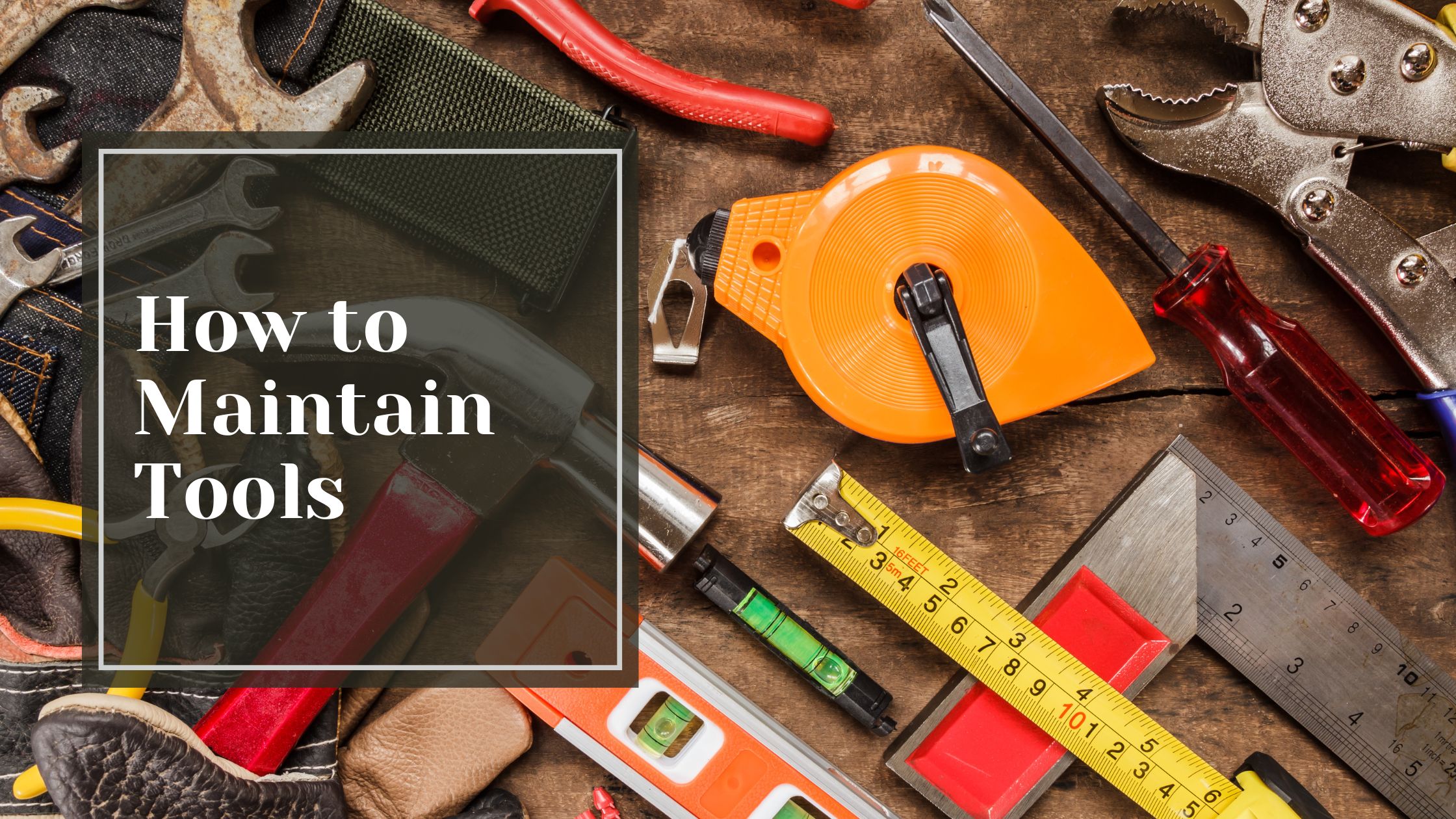Have you ever wondered why the third prong on your electrical outlets is so important? It’s all about grounding. Electrical grounding might not cross your mind much, but it is very essential to keep you safe from shocks and also protect your expensive devices. This means that when you plug in your laptop next time or even switch on a light, make sure that nothing goes wrong because without this dangerous effects could occur. Let’s discuss what electrical grounding means and how it matters for households and gadgets.
Table of Contents
Toggle
What is Electrical Grounding?
Electrical grounding is an important safety measure that helps prevent dangers for householders’ lives, their houses, and gadgets. To “ground” an electrical system seems like a complex term, then what does it mean? Let’s put it in plain words.
The Basics of Grounding
Essentially electricity gets discharged into the earth through a grounding path as a possible overflow of current. Electricity escapes through this route whenever there is any risk of excess electricity. That one-side metal pin found on three-prong plug-in devices represents ground connection when plugged into a power source socket; an appliance would have been powered without connecting the ground wire to it inside the house wiring network which ultimately terminates outside the home where soil takes charge.
How Grounding Works
Imagine you’re filling a bathtub. The drain acts like a grounding system, preventing overflow by allowing excess water to escape. Similarly, grounding prevents electrical “overflow” by giving excess current a place to go.
Why Three Prongs Matter
You’ve probably noticed that many electrical plugs have three prongs instead of two. Here’s why:
-
- The first two prongs carry the current (hot and neutral).
- The third, round prong is the all-important ground connection.
This design ensures that if something goes wrong, the excess electricity has a safe way out. It’s a simple yet effective safety feature that’s been saving lives and equipment for decades.
Master the fundamentals of electrical systems with 'Delmar's Standard Textbook of Electricity.' Ideal for journeyman electricians, this concise guide covers essential principles for installing, repairing, and troubleshooting electrical components.
Why is Proper Grounding Important for Safety?
Proper electrical grounding isn’t just a technical requirement—it’s a crucial safety measure that protects you, your loved ones, and your valuable electronics. Let’s dive into why grounding is so important and how it keeps you safe.
Preventing Electric Shocks
You’ve probably experienced little static shocks before but imagine it multiplying itself by 1000 times over; that’s what can happen in case there’s no proper grounding at home. When electricity systems are correctly grounded, excessive electricity finds an escape route through the earth minimizing the chances of you becoming this path.
Protecting Your Electronics
Consider all the costly gadgets that you have. Your mobile phone, computer, and even TV can be affected by power surges. By acting as a buffer against your devices, grounding helps to redirect any extra charges into the earth. Thereby, it saves you from incurring expensive repair costs or replacement fees and also prevents data loss.
Reducing Fire Hazards
When things go wrong electricity and fire go hand in hand. Systems without earth connections can cause overheating leading to sparks that may result in electrical fires too. Grounding protects your home or office from the risk of electrical fires because it offers an escape route for excess power voltage. It is like having an invisible firefighter on duty 24/7.
Stabilizing Voltage Levels
It may not be obvious but the electricity coursing through your house fluctuates. Proper grounding makes sure that there are constant voltages leading to smooth operations by appliances and electronics in a home or workplace. This has the effect of improving performance as well as prolonging the useful lives of electric equipment.
LOCCEF MicroFoam Coated Work Gloves provide excellent grip and safety for electrical tasks. Ideal for DIYers and professionals, they keep your hands protected while ensuring dexterity and comfort. Perfect for any electrical project.
How Does Grounding Work?
But what does “grounding” mean? For this reason, let’s delve into how this essential electrical safety feature functions down to its nuts and bolts.
The Path of Least Resistance
At its core, grounding works by providing electricity with an easy route back to the earth. Think of it as a safety valve for excess electrical energy. When everything’s functioning normally, electricity flows through your home’s wiring, powering your appliances and devices. But if something goes wrong – say, a wire comes loose or there’s a surge – that excess energy needs somewhere to go.
That’s where grounding comes in. It offers a low-resistance path for that runaway electricity to follow, directing it safely into the ground instead of through you or your valuable electronics.
The Grounding System
Your home’s grounding system consists of a few key components:
- Ground wire: This copper wire runs alongside the hot and neutral wires in your electrical system.
- Grounding rod: A metal rod driven deep into the earth outside your home.
- Ground fault circuit interrupters (GFCIs): Special outlets that can detect imbalances in electrical flow and cut power if needed.
Beyond Safety: Other Benefits of Grounding
While safety is the primary purpose of grounding, it offers other advantages too. A well-grounded system can help stabilize voltage levels in your home, reduce electromagnetic interference, and even protect against lightning strikes.
By understanding how grounding works, you can better appreciate its importance in keeping your home and family safe from electrical hazards. Remember, if you’re ever unsure about your home’s grounding system, it’s always best to consult a licensed electrician.
Where Should Grounding Be Installed?
When it comes to electrical grounding, proper installation is crucial for safety and effectiveness. Let’s explore where you should focus your grounding efforts to ensure your electrical systems are well-protected.
Key Areas for Grounding
Your home’s main electrical panel is the heart of your electrical system, and it’s the primary location for grounding. This central hub connects to the grounding electrode system, typically a metal rod driven into the earth outside your home. But don’t stop there – grounding should extend throughout your entire electrical system.
All outlets in your home should be properly grounded, especially in areas with high moisture levels like kitchens, bathrooms, and outdoor spaces. These locations are more prone to electrical hazards, making grounding even more critical.
Special Considerations
Certain appliances and equipment require extra attention when it comes to grounding:
-
- Large metal appliances (washers, dryers, refrigerators)
- HVAC systems
- Swimming pool equipment
- Outdoor lighting fixtures
Grounding in Older Homes
If you live in an older home, you might face some unique challenges. Many houses built before the 1960s lack proper grounding in their electrical systems. In these cases, you may need to update your wiring or install ground fault circuit interrupters (GFCIs) to improve safety.
What is Electrical Grounding and Why Is It Important
So there you have it – electrical grounding may not be the most exciting topic, but it’s crucial for keeping you and your home safe. Without proper grounding, you’re inviting electrical hazards to come knocking at your door. But with a well-grounded system, you can rest easy knowing you’re protected from shocks, fires, and other scary electrical mishaps. Next time you’re dealing with anything electrical, take a moment to appreciate that little green wire or metal rod – it’s working hard to keep you out of harm’s way. Stay grounded, stay safe, and don’t be afraid to call in a pro if you’re ever unsure about your home’s electrical setup.
Frequently Asked Questions
What Is Electrical Grounding And Why Is It Important?
Electrical grounding is a safety measure that directs excess electricity safely into the earth, protecting you, your home, and your electronics from potential shocks, fires, and power surges.
How Does Electrical Grounding Prevent Electric Shocks?
Grounding provides a low-resistance path for excess electricity, directing it into the ground instead of through you, significantly reducing the risk of electric shocks.
Why Are Three-Prong Plugs Important For Electrical Grounding?
Three-prong plugs include a grounding prong that offers a safe exit path for excess electricity, ensuring that if something goes wrong, the electricity is directed away from you and your devices.
How Does Proper Grounding Protect Electronics From Power Surges?
Proper grounding acts as a buffer, redirecting excess charges into the earth and preventing them from damaging your valuable electronics, thus avoiding costly repairs and data loss.
Where Should Electrical Grounding Be Installed In A Home?
Electrical grounding should be installed at your home’s main electrical panel and all outlets, especially in areas with high moisture like kitchens, bathrooms, and outdoor spaces, to ensure maximum safety.










